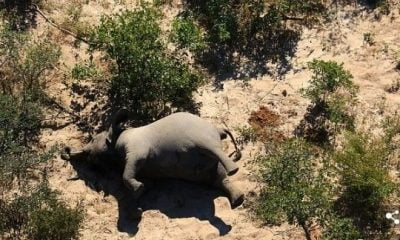Nigeria News
Minister Explains Why He Adopted An Elephant As Part Of His Family

The Minister of State for Environment, Dr. Iziak Salako, revealed that he has adopted an elephant as part of his family in a personal effort to protect Nigeria’s dwindling elephant population, which is now estimated to be between 300 and 400.
Speaking at the launch of the Nigeria Elephant Action Plan (NEAP) in Abuja on Tuesday, Salako shared that he chose to adopt an orphaned elephant to contribute to the conservation of this critically endangered species.
The minister highlighted that the NEAP will significantly enhance efforts to preserve the country’s remaining elephants and ensure biodiversity.
“Elephants are integral to our community and heritage,” he stated, adding that these majestic creatures play a crucial role in supporting flora and fauna and are vital for maintaining ecological balance.
Nigeria’s elephant population has suffered immensely due to habitat loss, poaching, and conflicts between humans and wildlife, leading to a devastating 99 percent decline in their numbers.
Salako emphasized that, in collaboration with the Elephant Protection Initiative Foundation and the Wildlife Conservation Society, the Nigerian government plans to use NEAP as a strategic framework to protect elephants and conserve the nation’s biodiversity.
The Nigeria Country Director for the Wildlife Conservation Society, Andrew Dunn, who was instrumental in drafting the comprehensive NEAP, noted that preserving Nigeria’s last elephants will require more than just financial resources; it will necessitate a significant shift in attitudes and a renewed commitment from federal and state governments to recognize the link between human well-being, global health, biodiversity loss, and climate change.
CEO of the Elephant Protection Initiative Foundation, John Scanlon AO, which supported the NEAP process, expressed optimism about the plan’s potential, saying, “The situation of Nigeria’s elephants is desperate but not hopeless. This plan offers us a last chance to conserve these magnificent animals.”
The NEAP, a 10-year strategic plan spanning from 2024 to 2034, outlines key components such as enhanced law enforcement, anti-poaching initiatives, modern technology for monitoring and intelligence sharing, and community engagement to foster peaceful coexistence between humans and elephants.




